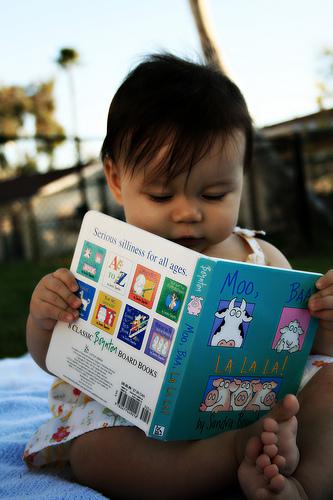Infants thrive on and need stimulation to ensure proper development. By stimulating your infant’s senses, you’re encouraging communication, interaction and learning. You’re also giving him a sense of importance. However, there can be too much of a good thing—an excess of new sights and sounds can overstimulate a baby. Also, not all methods of infant stimulation are beneficial. Walk through any major baby department and you’ll see numerous gadgets and videos claiming to make your baby smart. Are these really necessary?
Considerations
Infant stimulation is something humans have practiced throughout history—it was instinctual and necessary for survival. Today it’s a booming business as parents push their kids to learn more at younger ages. A child’s environment—before and after birth—are the most important risk factors for proper development. Babies learn best when immersed in a nurturing, loving environment that is responsive to their needs. Babies need room to explore and should be introduced to as many experiences (going to museums, joining playgroups) as comfortably possible. Babies need to be read and talked to, but their caregivers need to know when babies have had enough. Newborns, and especially premature babies, are very sensitive to their environment. Create a soothing environment by dimming lights and talking quietly to avoid overstimulation.
Prevention/Solution
Parents need to recognize when baby has had enough stimulation and follow baby’s cues to stop. An overstimulated baby will become fussy and may cry inconsolably. If your baby closes her eyes, turns away, becomes tense or irritable, stop what you’re doing and create a quiet, soothing environment. For example, playgroups are great for stimulation, but they can easily overwhelm a young baby. If your baby starts to turn away from the action and become cranky, take her to a quiet, dark corner and softly sing to her, allowing her to relax. A baby cannot learn well when overstimulated.
Significance
The right amount of stimulation is especially important to babies born prematurely. As always, consult with your baby’s health practitioner about premature care. Preemies may get overstimulated more easily than full-term newborns, and it’s best to introduce them to one sensation at a time. Preemies respond well to soft touches, like infant massage and kangaroo care, where the baby is held skin to skin with a caregiver.
Misconceptions
Many parents buy in to the idea that babies learn best by watching videos and playing with elaborate educational toys. Actually, simple activities are all children need for stimulation. Educational DVDs designed for babies may do more harm than good. The American Academy of Pediatrics discourages children under 2 from watching TV. According to Dimitri A. Christakis, a professor from the Seattle Children’s Research Institute and the University of Washington, baby TV programs expose children to flashing lights and quick edits that can cause overstimulation. Children learn better from direct contact with a person, rather than from a video.
Warning
As infants grow older (and mobile), they want to learn everything about the world around them. Baby proof your home to encourage baby’s natural desire to explore. If your home isn’t baby proof, not only can your infant get seriously injured, but he will grow up in a negative environment among a constant stream of, “No!” This teaches him that exploring is a bad thing and will discourage his desire to learn. Also, make sure the toys you introduce to your child are age appropriate.





